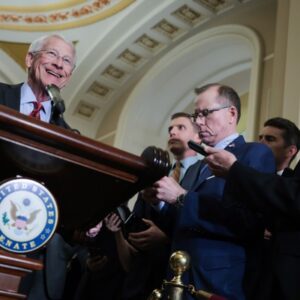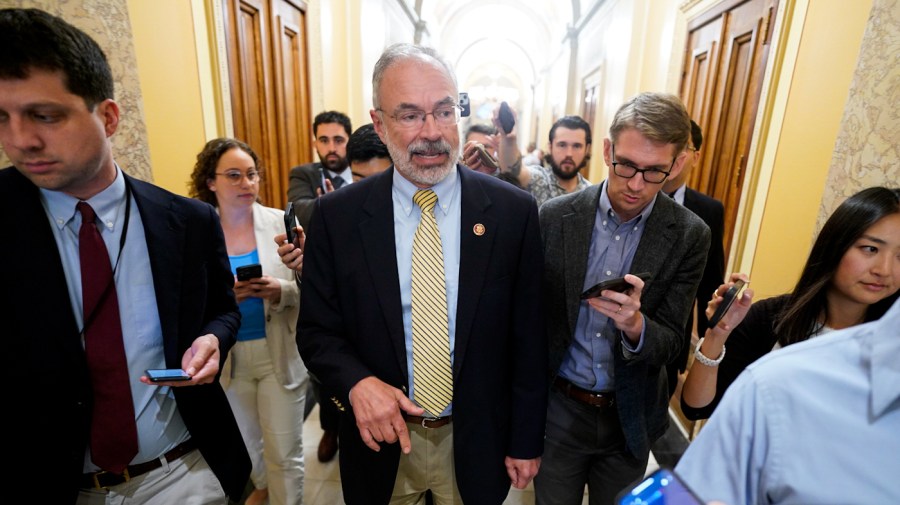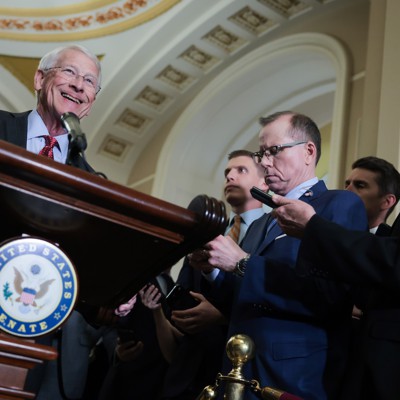A memo from deficit hawks within the House Freedom Caucus and other Republican factions has sharply criticized the Senate-passed version of President Trump’s tax cut and spending bill, known as the “One Big Beautiful Bill.” As GOP leaders push to pass the legislation before the July 4 deadline, the memo, titled “The Senate OBBA Failures,” accuses Senate Majority Leader John Thune (R-S.D.) and Speaker Mike Johnson (R-La.) of deviating from the House’s framework, which demanded dollar-for-dollar spending cuts to offset tax reductions.
“This was not what Leader Thune and Speaker Johnson promised,” the memo states. The document, first reported by Punchbowl News, highlights the growing tension as House GOP leaders aim to pass the megabill as soon as Wednesday. However, resistance from deficit hawks threatens to derail plans to deliver the bill to President Trump by Independence Day.
Internal GOP Tensions Rise
House Freedom Caucus Chair Andy Harris (R-Md.) emphasized that without significant changes, a faction within his caucus and beyond would block the procedural rule vote necessary to initiate debate on the bill. “Hopefully it goes back to Rules [Committee], gets moved closer to the House position, and the Senate gets called back into town,” Harris stated. “Senate never should have left town. The President asked us to stay until this issue was resolved and the Senate left town.”
The memo also criticizes the Senate for softening the phase-out of green energy incentives, alleging it “fails to terminate Biden’s ‘Green New Scam.’” Some complaints pertain to measures removed by the Senate parliamentarian for not complying with the Byrd Rule, which requires budget reconciliation legislation to be directly related to budget matters.
Contentious Provisions and Parliamentary Challenges
The special budget reconciliation process, which can be used once per fiscal year, allows Republicans to bypass the Senate’s 60-vote threshold and avoid needing Democratic support, enabling them to push the bill to Trump’s desk along party lines. The memo highlights that the Senate “Stripped Key Protection Against Illegals Getting Medicaid,” referring to the removal of a House provision penalizing states that provide Medicaid benefits to undocumented migrants.
Further criticisms include the Senate’s decision to limit the defunding of Planned Parenthood to one year and to eliminate the prohibition on Medicaid and CHIP funding for transgender surgeries, changes made due to parliamentarian rulings. The memo also condemns the Senate for altering new work requirements for nutrition assistance benefits, raising the age from 7 to 14 for those with children.
Last-Minute Additions and Fiscal Implications
The memo denounces provisions added to secure support from Sen. Lisa Murkowski (R-Alaska), such as expensing for meals on Alaskan fishing boats and special waivers for work and cost-sharing requirements for nutrition benefits. “In total, the Senate gutted House spending cuts and added new spending to the tune of more than $400 billion,” the memo claims.
“These losses include (1) gutting House reforms to SNAP; (2) undermining the House’s reforms to student loan programs; (3) slashing the House’s endowment tax on ‘woke’ elite universities; (4) eliminating President Trump’s provision to close tax loopholes abused by professional sports team owners; (5) massively expanding tax subsidies for semiconductors, despite the President’s call to ‘get rid of the CHIPS Act’ during his address to Congress, in addition to other swampy tax expenditures like a tax break tied to rum imported from U.S. territories; and (6) adding tens of billions in new spending for NASA, the Coast Guard, farm programs, and more.”
Looking Ahead: Potential Consequences and Next Steps
The GOP’s internal conflict over the bill underscores broader tensions within the party regarding fiscal responsibility and spending priorities. As the deadline approaches, the outcome of this legislative battle could have significant implications for the party’s unity and its ability to deliver on key promises to its base.
Analysts suggest that if the bill fails to pass, it could lead to a reassessment of GOP strategies and priorities, particularly concerning budgetary discipline and the reconciliation process. Meanwhile, the pressure mounts on GOP leaders to find a compromise that satisfies both deficit hawks and those seeking to advance the administration’s broader economic agenda.
As the debate continues, the political landscape remains uncertain, with potential ramifications for upcoming elections and the party’s long-term fiscal policies. The coming days will be critical in determining the direction of the GOP’s legislative efforts and its alignment with President Trump’s economic vision.























